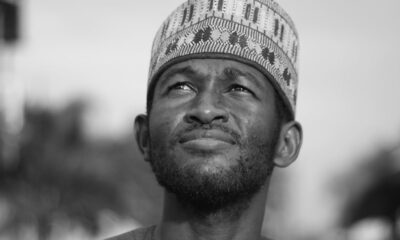Economic Issues
Getting State Finances Right -By Uddin Ifeanyi

We may not have set funds aside for today, but how could we have earned so much and failed to invest in capacity additions and upgrades that would lead to higher levels of productivity later? This has nothing to do with the Constitution. Instead, it has everything to do with our priorities as a people. Add to a disquieting propensity to consume, a widespread predilection for conspicuous consumption, and you understand why we spent the bulk of our oil earnings on recurrent items.
The difficulties which provincial governments have had with paying public sector salaries since the mid-2014 collapse of global oil prices is a multi-themed parable.
On one hand, there is the worry over how we could have earned so much from oil exports in the 10 years to June 2014, and still turn out completely out of pocket today. At this point, the parable leans heavily on the Bible. Joseph saw in the opportunity of seven years of plenty a chance to save for the seven lean years that were to follow. The Pharaoh listened to him. Our modern-day Pharaohs either failed to seek Joseph’s counsel or would not listen to him when they found it.
Once we are agreed as a people (remember the opening passage of our organising document) that we must spend from hand to mouth, then Joseph’s counsel to set resources aside for the rainy day would have been technically illegal, albeit possible as demonstrated by the Obasanjo administration.
In part, we have the Constitution to blame for this. Once we are agreed as a people (remember the opening passage of our organising document) that we must spend from hand to mouth, then Joseph’s counsel to set resources aside for the rainy day would have been technically illegal, albeit possible as demonstrated by the Obasanjo administration. But then there is more than one way to save.
And this leads to the next parable. We may not have set funds aside for today, but how could we have earned so much and failed to invest in capacity additions and upgrades that would lead to higher levels of productivity later? This has nothing to do with the Constitution. Instead, it has everything to do with our priorities as a people. Add to a disquieting propensity to consume, a widespread predilection for conspicuous consumption, and you understand why we spent the bulk of our oil earnings on recurrent items. At the household level, the operative analogy is of the gorgeously attired parent “spraying wantonly at social events”, who yet has not paid her children/wards’ school fees.
Even when concern is increasingly voiced, sotto voce, about the viability of a number of these state governments, no effort was made, as part of the relief programme, to understand the conditions leading up to these governments’ indebtedness.
A failure of the protestant ethic, or the absence of the spirit of capitalism? Both and neither. For our existing structures do not favour appropriate signaling. Put differently, for fear of what price signals would indicate, we fail to develop the markets across sectors of the economy. We do not have enough dollars in the CBN’s kitty to meet current levels of demand, and we all plump for the apex bank’s intervention to keep the naira up. Even if the preferred means is to lock up about 30 percent of such demand in basement. We apparently run a large appetite for refined petroleum products, but are unwilling to pay market prices for these. Instead, we funnel scarce resources into private pockets as part of a process of holding down the pump-station price for fuel.
The national mindset on the economy, it would seem, takes a lot off the communes that came with the French revolution. It is at bottom the democratisation of misery. In this respect, it shares so much with Hugo Chavez’s Bolivarian revolution.
…the design of the “comprehensive relief package” was flawed in more than one respect…a few of us had hoped that part of the “change” to our processes heralded by his government would have involved a strengthening of the public expenditure management framework that would allow us, henceforth, forego current consumption in the hope of higher earnings tomorrow.
Nowhere is this latter point more poignantly made than in the Federal Government’s recent decision to bailout state governments who have had problems paying their workers’ salaries. Even when concern is increasingly voiced, sotto voce, about the viability of a number of these state governments, no effort was made, as part of the relief programme, to understand the conditions leading up to these governments’ indebtedness.
Besides, the design of the “comprehensive relief package” was flawed in more than one respect. First, by “sharing” the about US$2bn recently remitted by the Nigerian Liquefied Natural Gas (NLNG) Company into the Federation Account, the Buhari administration only reinforces the spendthrift principle that has informed our governments since 1960. The depletion of the balance on the Excess Crude Account (ECA) ― the bailout package envisions the Federal Government sharing the US$1.7bn that is left in this fund ― further buttresses this view. Yet, a few of us had hoped that part of the “change” to our processes heralded by his government would have involved a strengthening of the public expenditure management framework that would allow us, henceforth, forego current consumption in the hope of higher earnings tomorrow.
It could be argued that the goal of the intervention funds is a negative one, i.e. to hold the different sectors of the economy from imploding, rather than the positive one of growing those sectors.
Second, the Central Bank of Nigeria (CBN) is to put together a “special intervention fund” that would offer to the states anything from N250bn to N300bn in the form of soft loans with which ― wait for it ― they may pay the arrears of salaries owed their workers. The last decade of the CBN’s operation in this country has seen it put together a myriad of such intervention funds. All we need ask is how much the economy has benefited from all of them. It could be argued that the goal of the intervention funds is a negative one, i.e. to hold the different sectors of the economy from imploding, rather than the positive one of growing those sectors. But do we then not invite more serious consideration of the overall health of this space and the utility of expensive programmes such as these in keeping a leaky boat afloat?
Third, to have advanced the bailout without conditions, while assuming that spendthrift administrations may have been responsible for the dire conditions of most of the states, would qualify as an act of near criminal negligence. The Buhari government does however make a nod in this direction with the fourth leg of its bailout: the design by the Debt Management Office of debt relief programme that will allow states restructure their commercial loans.
It matters that no discussion of the oil price outlook over the medium term has a barrel back above US$100. Nor can we ignore the fact that we will continue to have difficulty pushing the volumes of oil export that we are increasingly familiar with.
Basically, this would involve banks to which these monies are owed either agreeing to extend the repayment periods for these loans, and/or reducing the rates at which interest accrues on them. Nothing wrong here in requiring banks to take haircuts on these risk assets, for if most of them had followed their respective risk acceptance criteria, a large portion of the loans would not have been lent. Conversely, whereas the restructuring process would take a long time to get by, it would have been expedited if the federal government had insisted on a scheme of arrangement-type preconditions for state government beneficiaries of the bailout.
And when the bailout monies are completely spent (on recurrent expenditure budget lines) by the end of this year, what would be our next recourse?
It matters that no discussion of the oil price outlook over the medium term has a barrel back above US$100. Nor can we ignore the fact that we will continue to have difficulty pushing the volumes of oil export that we are increasingly familiar with. The latter hurdle has nothing to do with effective installed oil exploration and production capacity.
We should look instead to the strong headwinds from an America that looks like becoming self-sufficient in fossil fuel production over the next ten years. To a Euro area that would continue to struggle with the Greek problem for a while yet. To a China that is increasingly becoming a “normal” economy. And to a world whose concern over the rapid warming of our lived space leads it to weaning itself off fossil fuels.
These, more than any other stimuli, should force us to interrogate how we are organised as a people. Whereas subnational governments are an essential definition of our federal experiment, it is important that at the provincial and municipal levels, our constituent units are of an optimal size.




















